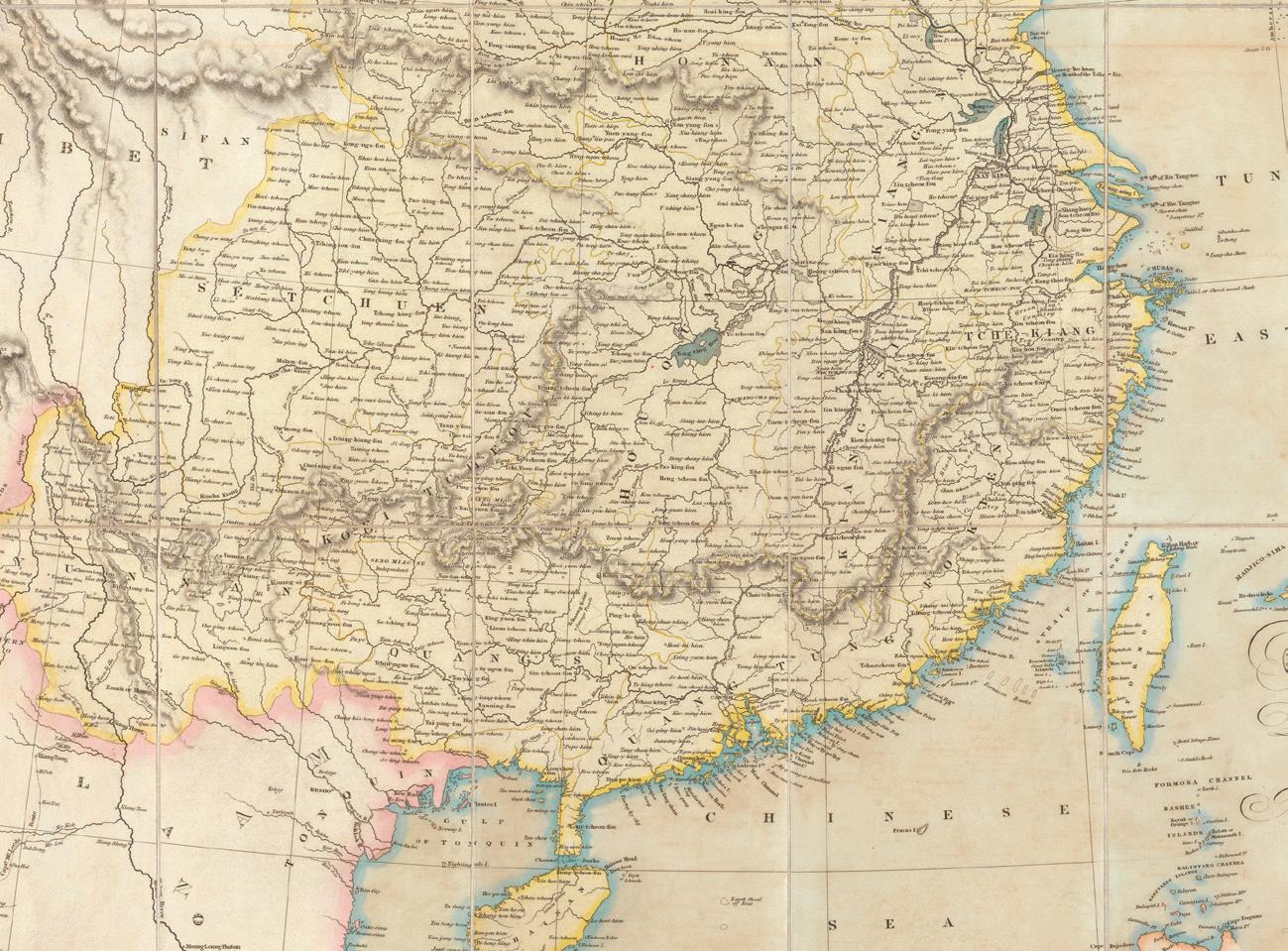
5 minute read
Missions expansion
BY STEPHANIE PATENAUDE
I grew up in a church that venerated the classic stalwarts of missiology. Names like Hudson Taylor, David Livingston, and Amy Carmichael were pinned at the top of the list of examples of a life wholly devoted to the Lord. “Look at what they did; see how they lived.” I enjoyed the stories of adventure and sacrifice but often felt a pang of guilt when I acknowledged that my life would never look anything like these. One may be tempted to survey the cultural landscape of 2025 and dismiss these old missionary stories as a romantic picture of a world long ago. Beautiful, yes, but are they applicable today?
While the world may look different today than it did in 1853, people haven’t changed much. Their lost nature and profound need of a Savior remain as stark as ever. So I’m grateful to have the opportunity to reflect on the life of a man who cast aside worldly ambition for the sake of the lost. A man as intelligent, driven, and perseverant as Hudson Taylor could have quickly risen to the top of an industrializing America. Instead, this servant counted the cost, laid aside selfish ambition, and esteemed others’ eternal salvation as a higher priority than his own desires. Hudson Taylor was born in 1832. He eventually felt called to the mission field and committed to going to China. In preparation for this, he studied Mandarin, Greek, Hebrew, and Latin. He was eventually fluent in several varieties of Chinese and soon fluent enough to prepare an edition of the New Testament in two of them. He also studied medicine and midwifery to be able to serve the people to whom he would be ministering.
Hudson Taylor’s life and ministry were marked by perseverance in the face of adversity. Despite hardship, heartache, illness, and death, he persisted in his work to share the saving knowledge of a Savior with a lost people. He was married, widowed, and married a second time. He was the father to 14 children, five of whom died in infancy. His first voyage to China was a disastrous five months, and he arrived to a country embroiled in a civil war. After 12 years of ministry and family building together, Taylor’s wife, Maria, died of cholera. During the Boxer Rebellion in 1870, 58 missionaries and 21 children from the mission lost their lives. During the winter of 1874, Hudson suffered an injury to his spine that left him paralyzed for about six months.
In the midst of these challenges and losses, Taylor, along with William Thomas Berger, founded the China Inland Mission. This mission embraced members of many leading denominations if there was a “soundness in the faith in all fundamental truths.” Members were unified in their aim, with the help of God, to bring the Chinese to a saving knowledge of the love of God. Missionaries were to go in dependence upon God for temporal supplies, with no guarantee of any income. At the end of his ministry, Taylor had spent 54 years in China. The CIM that he began was responsible for bringing 800 missionaries to China. Due to CIM’s outspoken voice against the opium trade, Taylor is considered one of the most influential Europeans in China during the 19th century. Taylor and the ministry of the CIM went on to profoundly influence the lives of Amy Carmichael, Eric Liddel, Jim Elliot, and Billy Graham.
The greatest people accomplish a lot but never draw attention to themselves or seek human praise. Hudson Taylor didn’t seek his own glory. He didn’t recognize his own greatness and show it off to the world. He saw a people who needed to hear that they were loved by a God who is mighty to save. I’m convinced that these are the men and women worth heralding as heroes and encouraging our children to emulate; they point ultimately to Jesus, the author and perfector of our faith.
“But we see him who for a little while was made lower than the angels, namely Jesus, crowned with glory and honor because of the suffering of death, so that by the grace of God he might taste death for everyone. For it was fitting that he, for whom and by whom all things exist, in bringing many sons to glory, should make the founder of their salvation perfect through suffering” (Hebrews 2:9–10).
This is the same Jesus that Hudson Taylor wanted to show to the people of China—the Jesus who suffered and died to redeem us who are lost and bring us to glory. And because of that, we can and should rejoice.
Patenaude is a member of West Prairie Free Lutheran, Kindred, N.D. Artwork: “Map of China and the Adjacent Countries,” William H. Allen and Co., 1842, Yale Center for British Art. “Hudson Taylor,” 1893, Wiki Commons.










